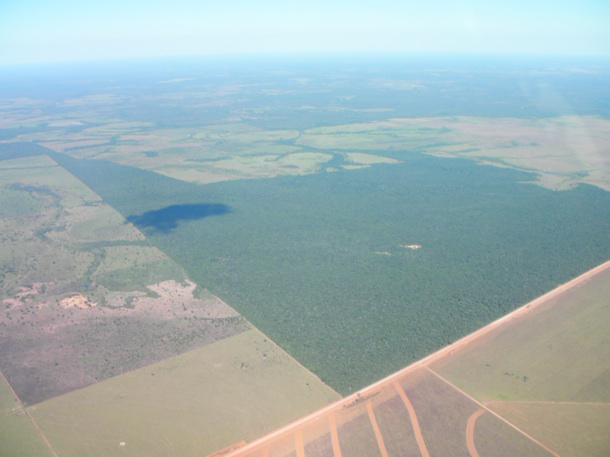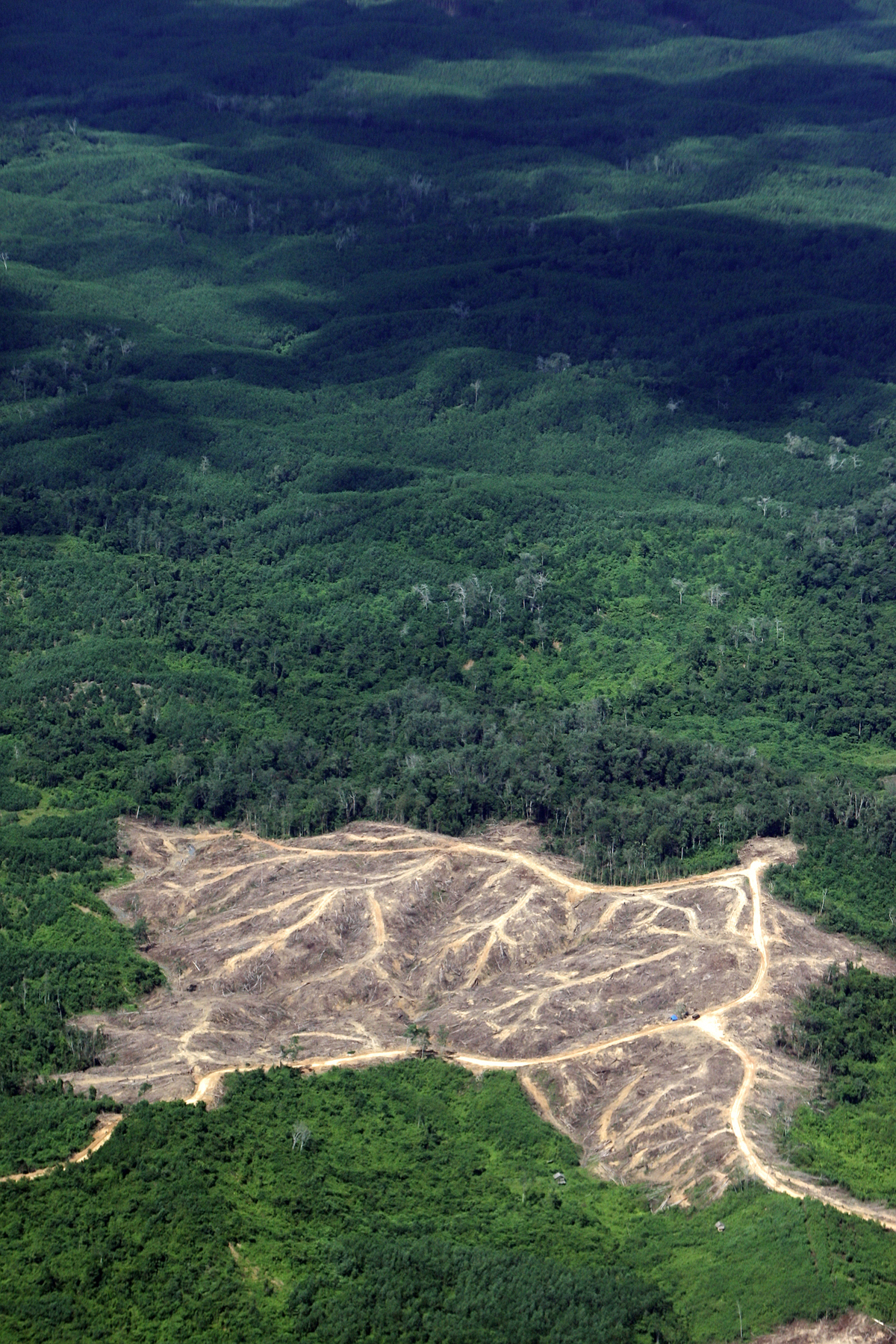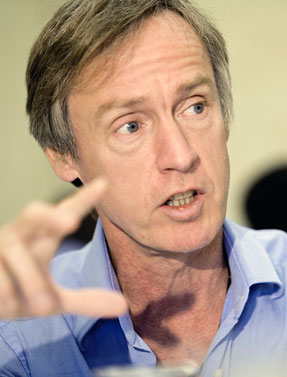REDD Agreement Reached in Warsaw
Air Date: Week of November 29, 2013

This year’s UN climate negotiations in Warsaw featured a hunger strike and a walk out. But Tropical Forest expert Steve Schwartzman tells host Steve Curwood that in the final hour the delegates emerged with a concrete plan to limit emissions from deforestation.
Transcript
CURWOOD: From the Jennifer and Ted Stanley Studios in Boston, this is Living on Earth.
I’m Steve Curwood. One bright outcome from the recent UN Climate negotiations in Warsaw is final agreement on the rules to reduce emissions from the destruction and degradation of forests, known as REDD. The loss of tropical forests is a major part of human-induced global warming, and since 2007 negotiators have been hammering out a way to address the problem. Now there is what’s called the Warsaw Framework for REDD, and the next task is to work out broad funding. Here to tell us more is Steve Schwartzman, the Tropical Forest Director for the Environmental Defense Fund.
SCHWARTZMAN: Well, I think what the international climate negotiation needs most of all is the kind of thing that happened in Warsaw around forests. This is a case where poorer developing countries and emerging economies and richer developed countries agreed on concrete steps that are going to allow them to achieve emissions reductions in a way that works for everybody. That gets over this interminable back and forth about who goes first and who’s responsible, and it finds us a win-win solution that allows the world to move forward on an important aspect of fighting climate change.
CURWOOD: So remind us, exactly how does REDD work? What’s the basic concept here?

Deforestation in Borneo (photo: Bigstockphoto.com)
SCHWARTZMAN: The basic concept is that a tropical forest, country or a state, or a province that can reduce its overall deforestation below historical levels should be able to be compensated, either by public sector donors, by other countries, or eventually by carbon markets for making those reductions.
CURWOOD: So what exactly was decided in Warsaw when it comes to REDD?
SCHWARTZMAN: Well, the parties to the international climate negotiation decided on basic technical principles for countries to be able to be compensated for reducing their deforestation. So they decided what countries need to do to show that they’re monitoring and measuring and verifying their forests, their forest carbon stocks, and the emissions from those, and how to set reference levels, which is the basis for getting results-based compensation. They also agreed that results-based compensation is going to be calibrated in carbon. That’s really good because it means that when there’s robust enough carbon market to be able to accommodate reducing emissions from deforestation and forest degradation, this will fit right in.
CURWOOD: How new is this?
SCHWARTZMAN: The principle has been around for a long time. There’s never been a real agreement on overarching guiding principles for what countries need to do in terms of monitoring and measurement and setting reference levels to allow this to go forward. Now there is.

Steve Schwartzman (photo: Environmental Defense Fund)
CURWOOD: How big of a deal is this in terms of emissions, do you think?
SCHWARTZMAN: Well, overall, land use change, including tropical deforestation and agriculture, account for about 30 percent of all the emissions annually. Just deforestation is probably around half of that. So that’s on the order of the emissions from all of the trains and cars and buses and trucks and airplanes in the world. So it’s right after burning fossil fuels as a source, so it’s a big deal.
CURWOOD: Now, where is the funding for this going to come from?
SCHWARTZMAN: Well, there’s already about $700 million a year that’s been approved by different donor governments to fund this kind of approach. I think ultimately we’re going to see carbon markets investing even more than that going forward.
CURWOOD: And where exactly does the money go? I know that some people are concerned that the local people who traditionally rely on forests for their livelihood aren’t really seeing the financial benefits from REDD, might not really see them.
SCHWARTZMAN: Well, since REDD is really only starting in a couple of places, nobody is really seeing the financial benefits yet. Ultimately, for this to work, landowners who have rights to deforest that they’re willing to forgo in exchange for compensation, as well as forest communities, like indigenous peoples who have always protected the forests, and governments who are doing a good responsible job of taking care of the forests, the states, all need to benefit.
CURWOOD: So what do you see as the challenges now for REDD as it goes forward from here?
SCHWARTZMAN: I think it is still a major challenge that so far there is no single compliance of regulated market that actually accepts credit for reducing deforestation. It’s very important that governments like Norway, Germany, UK and the US have committed public sector funding for these things, but we’ve seen in the past that counting on public sector funding over time for a large scale payment for ecosystem services program is typically pretty dicey.
CURWOOD: So, in other words, you’re looking for the private sector to get in here.
SCHWARTZMAN: Yes, ultimately here we need really serious private sector involvement to make REDD work.
CURWOOD: Steve Schwartzman is the Director of Tropical Forests Program at the Environmental Defense Fund. Thanks for taking the time today, Steve.
SCHWARTZMAN: Thank you, Steve.
Links
Check out Steve Schwartzman’s page at the Environmental Defense Fund
Living on Earth wants to hear from you!
Living on Earth
62 Calef Highway, Suite 212
Lee, NH 03861
Telephone: 617-287-4121
E-mail: comments@loe.org
Newsletter [Click here]
Donate to Living on Earth!
Living on Earth is an independent media program and relies entirely on contributions from listeners and institutions supporting public service. Please donate now to preserve an independent environmental voice.
NewsletterLiving on Earth offers a weekly delivery of the show's rundown to your mailbox. Sign up for our newsletter today!
 Sailors For The Sea: Be the change you want to sea.
Sailors For The Sea: Be the change you want to sea.
 The Grantham Foundation for the Protection of the Environment: Committed to protecting and improving the health of the global environment.
The Grantham Foundation for the Protection of the Environment: Committed to protecting and improving the health of the global environment.
 Contribute to Living on Earth and receive, as our gift to you, an archival print of one of Mark Seth Lender's extraordinary wildlife photographs. Follow the link to see Mark's current collection of photographs.
Contribute to Living on Earth and receive, as our gift to you, an archival print of one of Mark Seth Lender's extraordinary wildlife photographs. Follow the link to see Mark's current collection of photographs.
 Buy a signed copy of Mark Seth Lender's book Smeagull the Seagull & support Living on Earth
Buy a signed copy of Mark Seth Lender's book Smeagull the Seagull & support Living on Earth

